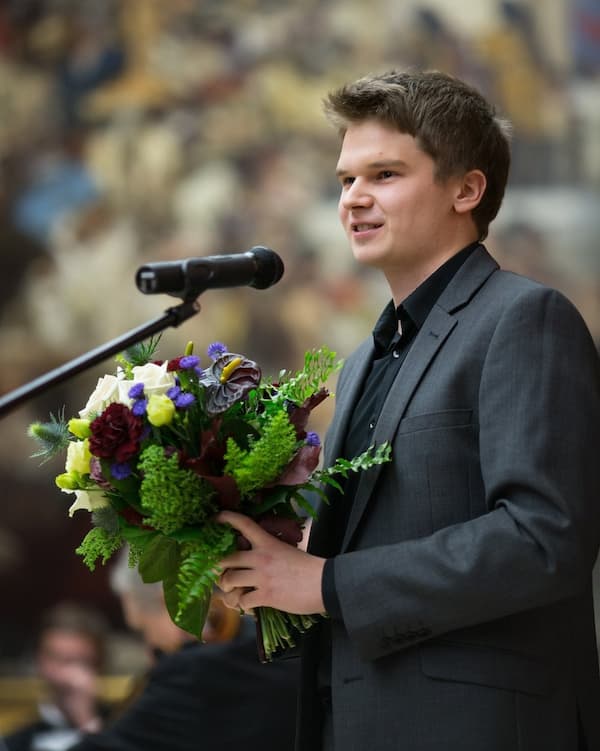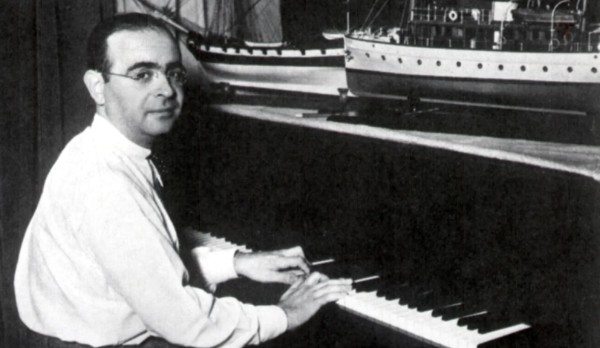When the Skallsjö Sommarorkester was founded in 2013, all the members were between 15 and 18 years old. They loved classical music and believed that classical music had been given an undeservedly bad reputation for being boring and was dying. They found classical music to be enjoyable and, at its core, something for everyone. The orchestra has 21 members and no conductor.

Skallsjö Sommarorkester
By 2024, the former high school students had graduated, gotten into conservatories and music colleges, or had become professional musicians. The Sommarorkester started as an orchestra for their vacation time, separate from their other musical lives. From 2013, their summers were full of concert tours, starting in Sweden and then expanding to Germany, Luxembourg, Norway, and Denmark. They love playing in small towns in western Sweden and bringing their orchestra to areas where orchestras rarely visit. They take the orchestra not only to concert halls but also take advantage of the summer weather by playing in the open air, in monasteries and cathedrals, and on the main shopping streets and centres.
The COVID summer of 2020 held them back a bit, but by 2021 had developed into a summer chamber music festival, centred on the city of Vänersborg: The Evolution Music Festival.
The Skallsjö Sommarorkester decided to put out their first recording to test their theory of the versatility of classical music. On Glöden, as they say, ‘Swedish folk music in classical guise meets an invented Balkan dance taken from the world of Tintin and Polish hard rock minimalism’. This classical fusion was backed by recording ‘the most fun and best music’ they knew.
One track on the album was the result of the orchestra’s Skallsjö International Composing Competition (SICC) in 2020. Polish composer Maciej Balenkowski (b. 1993) wrote his Sinfonietta Polonia as his take on Polish minimalism.

Maciej Balenkowski
Dedicated to the Polish composer Wojciech Kilar (1932–2013), best known for his film music, the work blasts open with a charging and energetic opening that continues to build straight to the end. Each individual member of the orchestra has their own musical lines, and as much as this is a work for orchestra, it can also be thought of as a work for 21 soloists. You’ll hear elements of American minimalism, such as Reich and Glass, but Balenkowski adds in Polish flourishes that truly make it his own.
Maciej Bałenkowski: Sinfonietta No. 2, “Polonia” (Skallsjö Sommarorkester)
One of the elements that makes the work so intriguing is the constant changes of time signature, an astounding 163 changes through the work. Add the additional accents, and the listener feels spun around by the work. The composer says he dedicated the work to Kilar because of that composer’s ability to ‘create an entire musical world from just one motif. I had the desire to challenge with this matter, building complete musical form based on limited music material and thus pay tribute to one of the most inspiring Polish composers’.
Maciej Bałenkowski: Sinfonietta no. 2 “Polonia”
The Skallsjö Sommarorkester seeks to bring out the fun they find in music, declaring: ‘It’s not our music, it’s everyone’s. It’s not our orchestra, it’s everyone’s’. Starting with music played during their summer school breaks to music now played during their brief vacation time, the orchestra brings vitality and happiness to classical music. They see classical music as shackled, imprisoned in old concepts, and do their best to give it a new lease of life for all their listeners.
For more of the best in classical music, sign up for our E-Newsletter


